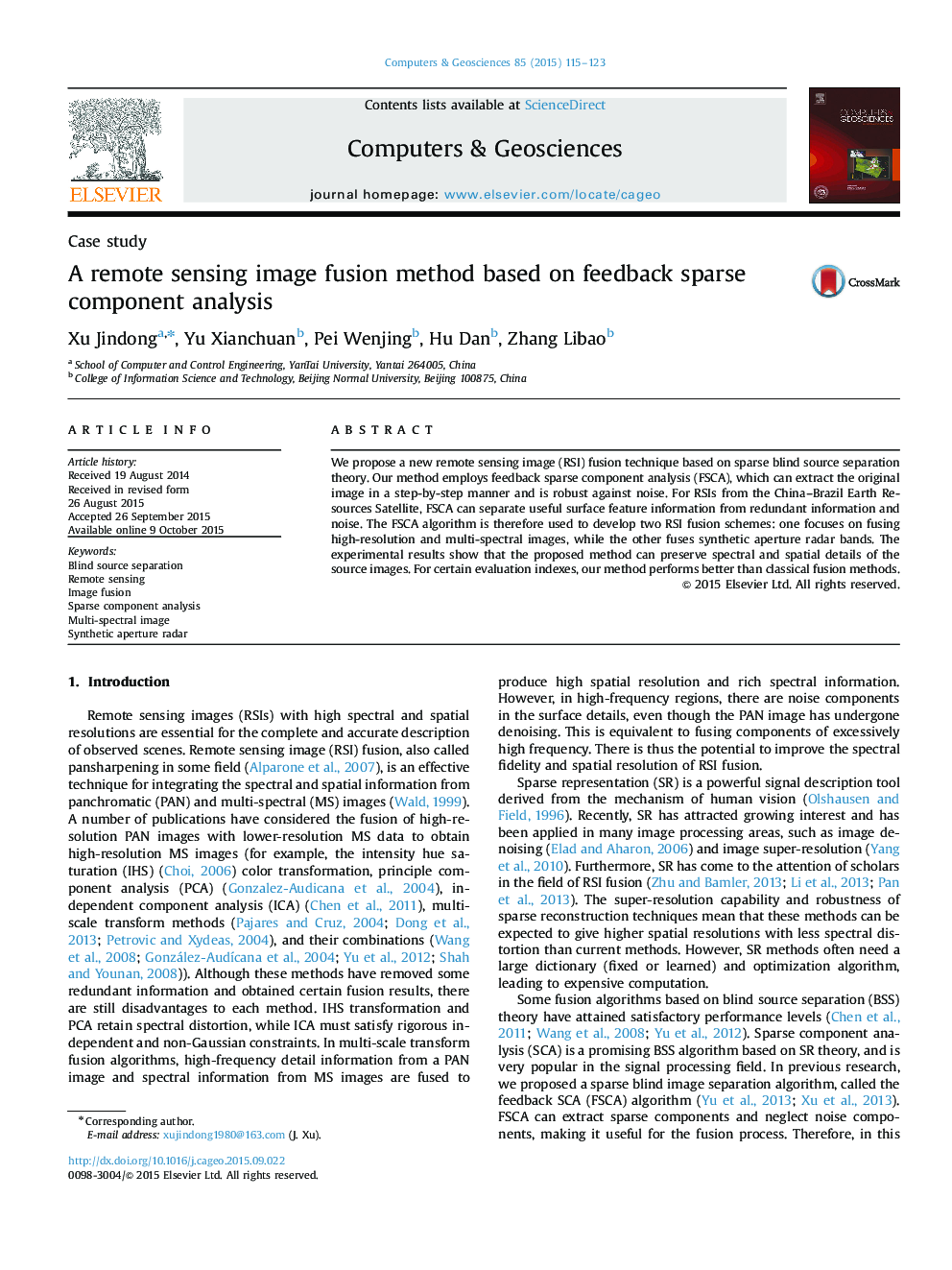| Article ID | Journal | Published Year | Pages | File Type |
|---|---|---|---|---|
| 506961 | Computers & Geosciences | 2015 | 9 Pages |
We propose a new remote sensing image (RSI) fusion technique based on sparse blind source separation theory. Our method employs feedback sparse component analysis (FSCA), which can extract the original image in a step-by-step manner and is robust against noise. For RSIs from the China–Brazil Earth Resources Satellite, FSCA can separate useful surface feature information from redundant information and noise. The FSCA algorithm is therefore used to develop two RSI fusion schemes: one focuses on fusing high-resolution and multi-spectral images, while the other fuses synthetic aperture radar bands. The experimental results show that the proposed method can preserve spectral and spatial details of the source images. For certain evaluation indexes, our method performs better than classical fusion methods.
